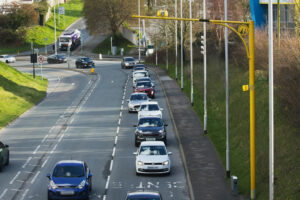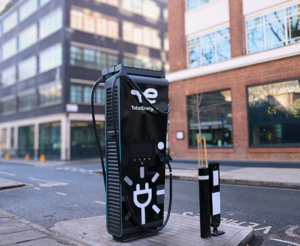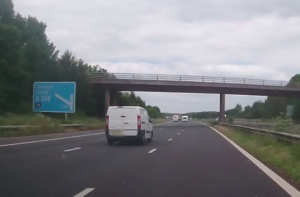The Joint Committee on Environment and Climate Action in Ireland has called for a review of all planned road construction projects with a view to reallocating funding to sustainable transport schemes, consideration of road charging and mileage reduction targets, accelerated transition to electric vehicles and electrification of commuter rail lines, and an immediate expansion of public transport measures for rural and dispersed communities.
The Committee launched its Report on Reducing Emissions in the Transport Sector by 51% by 2030, the first of a series of sector analyses on how Ireland will meet its target of a 51% reduction in emissions by 2030 and net zero emissions by 2050, in line with the Climate Action and Low-Carbon Development (Amendment) Bill 2020 currently going through the Houses of the Oireachtas.
Committee Cathaoirleach Deputy Brian Leddin said: “Ireland has the fourth highest level of transport emissions per capita in Europe and the transport sector is responsible for around 20% of our overall CO₂ emissions, with private cars being the largest contributors to transport emissions. Taking into account projected population growth and, in turn, economic growth in the coming decades, Ireland will face a significant challenge in decarbonisation of the transport sector.”
The key theme to emerged from the Committee meetings and written submissions from stakeholders was that the ‘avoid-shift-improve’ approach to reducing emissions is the internationally recognised standard that should be implemented in order to achieve our targets by 2050. This approach sets the emphasis on more radical and long-term policy changes:
· Avoid – reduce the need for travel;
· Shift – move travel to more environmentally-friendly/sustainable modes;
· Improve – improve efficiency of transport modes to reduce emissions.
Deputy Leddin said: “Our report seeks to embed the ‘avoid-shift-improve’ approach into our transport and mobility infrastructure planning. Reducing transport demand must be the first and key priority, followed by shifting carbon-intensive journeys to zero carbon modes such as walking and cycling, and by providing sustainable public transport in both rural and urban areas.
“This report challenges the conventional ‘predict and provide’ approach and legacy of poor planning that has induced traffic and car dependency, driven road construction and high greenhouse gas emissions, with their resulting adverse consequences for our economy, our health, our society and our environment.”
The Committee makes a total of 47 conclusions and recommendations across five areas – planning, public transport and active modes, electrification, freight transport and future challenges. The main recommendations are:
· A review of future road construction projects should be conducted, to include an analysis of whether such substantial investment would be better allocated to more sustainable projects such as remote-working hubs and sustainable transport modes;
· Further exploration be given to the establishment of remote working hubs in towns and villages, including sustainable transport links to these hubs, particularly in less densely populated areas, and that a national target for remote working should be introduced;
· A policy of road space reallocation away from the private car and towards sustainable transport modes be introduced for cities, towns and villages, in order to induce demand for sustainable transport modes and to reduce capacity for private cars;
· In light of the evidence from rural public transport projects such as the ‘Every Village, Every Hour’ project in Germany, there should be a significant increase in targeted investment in an immediate expansion of public transport measures for rural and dispersed communities in Ireland, to provide a realistic alternative to travelling by car;
· The examination of road user charges, including potential targets for car mileage reductions to reduce transport emissions. The reallocation of revenue from such charges to more sustainable alternatives should form part of this examination;
· Cycling superhighways such as those in Denmark and London should be developed as an alternative travel option for those living outside larger cities. Family-friendly cycling infrastructure should also be introduced;
· A free public transport system should be costed as an option for encouraging the uptake of public transport in Ireland. The Minister for Transport should consider the benefits and feasibility of the provision of free public transport, based on the experiences in Europe and elsewhere, and roll out initiatives in this respect as soon as possible;
· To achieve a transition to fully electric, zero-emission Electric Vehicles (EVs), efforts should be made to fully and quicklyequalise the purchase cost of new zero emission EVs with fossil fuel vehicles. Incentives and supports for EV take-up should be reviewed and targeted;
· Consideration be given to the further electrification of all public transport including commuter rail lines as part of the DART+ programme;
· An appropriately revised cost-benefit methodology should be applied to a review of current plans for the expansion of rail lines, including commuter lines that have been excluded due to current cost-benefit analysis tools;
· An appropriately revised cost-benefit methodology should be applied to all transport projects to capture the short- and long-term climate costs and benefits and the potentially excessive weight given to time savings;
· In order to address emissions in relation to road freight, a central digitalised system for freight logistics in Ireland should be developed which would allow all carriers to work towards ensuring fully loaded journeys, backloading, as well as re-routing and rescheduling to avoid congestion. Measures to encourage use of national and toll roads by freight rather than smaller roads should be considered, which may include flat annual fees for toll roads.
Deputy Leddin concluded: “This report points the way towards how we achieve the necessary reduction in transport emissions through a fundamental change in how we plan and manage a quality and sustainable transport system in Ireland.”
























